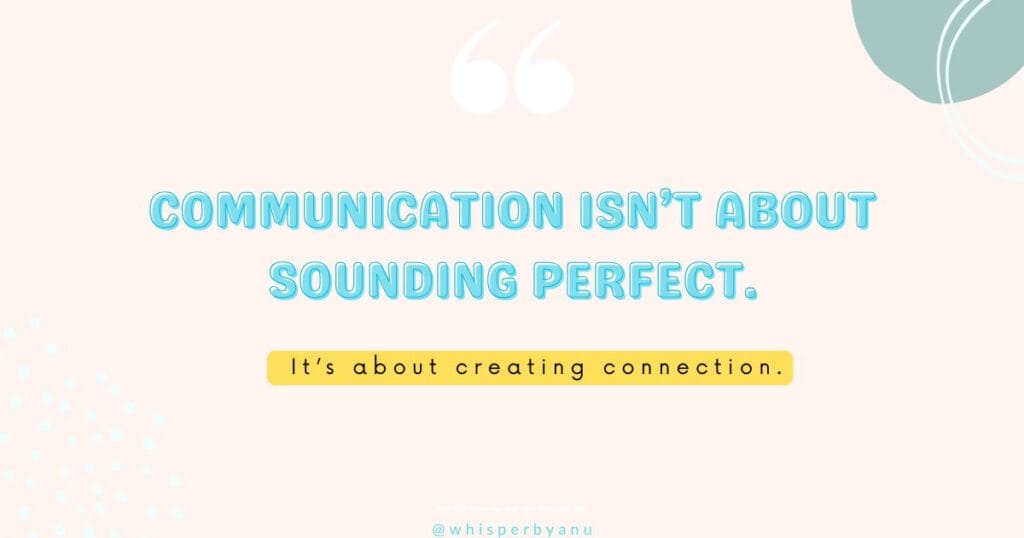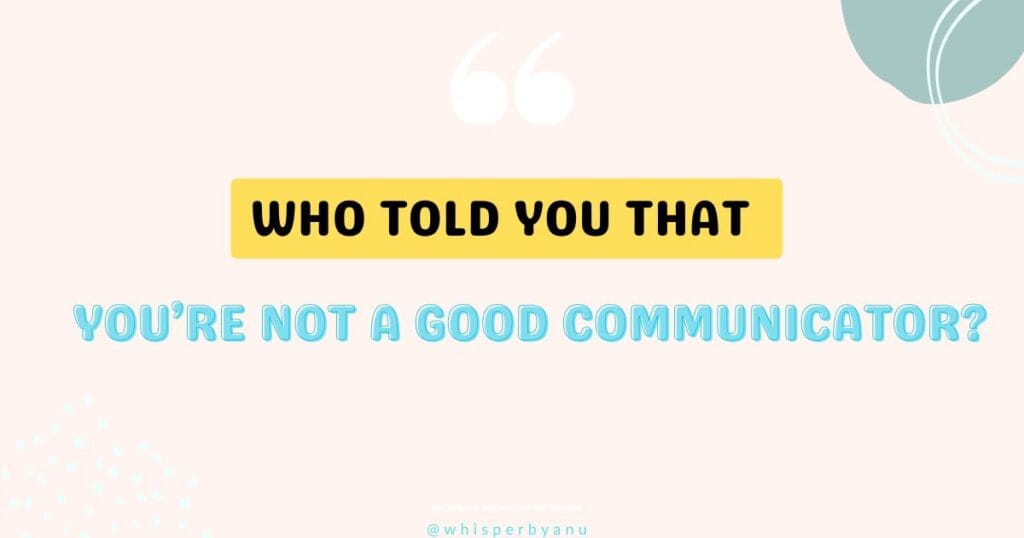
Why is communication so hard?
Communication has always fascinated people. We read books, watch TED talks, and learn countless “tips and tricks” on how to become better speakers. Yet, only a few people actually master it. Why is it so difficult to talk to others, connect deeply, and deliver our message without misunderstandings?
Maybe you’ve tried hundreds of techniques, but you still freeze when speaking in public. You argue with your partner because you can’t quite understand each other. You struggle to connect easily with people, and slowly, this starts eating away at your confidence.
So, what’s going wrong? The answer might surprise you: it’s not about more techniques, but about what’s happening inside you. Before learning to communicate outwardly, you need to start working on how you talk to yourself.
Where we go wrong
Most of us try to “sound fluent” or “look confident” without paying attention to our inner dialogue. We become pretentious, and that shows up in our communication sooner or later.
The truth is simple:
- The way you talk to yourself shapes your mindset.
- Your mindset shapes your confidence.
- And your confidence directly affects how you communicate with others.
Positive self-talk builds confidence from within, which naturally flows into how you speak. On the other hand, negative self-talk feeds insecurities and doubt, and no amount of tricks can fully hide that.
The science behind self-talk
Does this really work? Yes — and here’s why.
Our brain is made up of billions of neurons (nerve cells). Every thought you repeat forms a pathway between those neurons. When you keep feeding yourself affirmations like “I am confident, I can communicate clearly”, you’re strengthening pathways linked to confidence, calmness, and problem-solving.
There’s also a fascinating concept called neuroplasticity — the brain’s ability to adapt and rewire itself throughout life. This means you can literally train your brain to become more confident, even if you’ve always struggled with fear or self-doubt. By replacing negative self-talk with positive affirmations, you’re rewiring your brain step by step.
Think of it as a gym workout for your mind. The more consistent you are, the stronger those “confidence muscles” grow.
My personal touch: Affirmations that work for me
I’m a very Pinterest-y girl. I love saving affirmation pins like “I’m magnetic. I’m a goddess.” Honestly, they give me an instant energy boost whether I’m having a bad day or preparing for a meeting.
I’ve also used self-talk affirmations before going on stage. I tell myself, “I’m the greatest speaker.” And you know what? That mental boost makes me deliver better. The audience doesn’t just see confidence — they feel it.
If you’d like to try it too, here’s a list of 20 powerful affirmations to become a confident communicator:
My ideas are worth sharing.
I speak with clarity and purpose.
I can communicate with ease.
My voice matters.
I express myself confidently and calmly.
I listen deeply and respond thoughtfully.
I bring value to every conversation.
I connect with people authentically.
I remain calm under pressure.
I speak from a place of honesty and strength.
I deserve to be heard.
I can adapt my words to suit any audience.
I trust my ability to communicate.
My words create impact and inspiration.
I radiate confidence when I speak.
I speak with empathy and respect.
I am always improving as a communicator.
I can turn nervous energy into positive energy.
I enjoy sharing my ideas with others.
I inspire confidence in others through my words.
Pick a few that resonate with you, repeat them daily, and watch how your mindset shifts.
What happens next?
Here’s where the magic happens — positive self-talk doesn’t just make you feel good inside. It reshapes how you communicate with others. Let’s break it down:
-
Inner Dialogue → Mindset: When you feed yourself positive affirmations, your brain rewires itself toward confidence and calmness.
-
Mindset → Presence: That inner calmness reflects in your body language, tone of voice, and ability to listen.
-
Presence → Communication: Because you believe in yourself, you speak with clarity, connect more deeply, and express your ideas with impact.
-
Communication → Connection: People feel your authenticity and confidence, which builds trust and makes your words more powerful.
So the journey looks like this: self-talk → mindset → confidence → communication → connection.
When you nurture your inner voice, you aren’t just learning to “say the right words” — you’re becoming the kind of person people want to listen to. That’s the real transformation.
Of course, this isn’t an overnight process. But remember, Rome wasn’t built in a day. Your communication journey doesn’t need perfection — it just needs progress.
Final Thought:
If you want to transform the way you speak to others, begin with how you speak to yourself. Communication is not just about words — it’s about energy, belief, and authenticity. Positive self-talk rewires your brain, strengthens your confidence, and eventually, your words will carry the weight of who you truly are.


